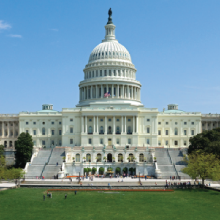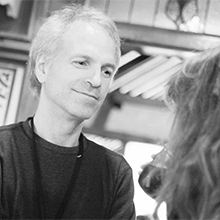Day 1 at ASCO
I’m attending the American Society of Clinical Oncologists (ASCO) annual meeting again this year. My first impression is that there has been a major change in emphasis over the past couple of years, and especially this year, from studying targeted therapies to developing immunotherapies. Yesterday, I attended a review session entitled Immunology for Nonimmunologists where six speakers spoke on various topics including vaccines, adjuvants, dendritic cells, T-cell therapy, monoclonal antibodies, etc. There must have been 2,000 people in the room, a big difference from just a few years ago when Interleukin-2, for RCC and melanoma, was the only game in town. This bodes well for kidney cancer patients as immunological research in other cancer types can cross fertilize research in RCC.
I want to note a couple of presentations that I saw yesterday. For the last few years, I’ve been following the development of the dendritic cell therapy AGS-003 in kidney cancer. Asimov Amin from the Levine Cancer Institute in Charlotte, NC, presented the final results for a Phase II trial combining AGS-003 with sunitinib (Sutent) in 21 unfavorable prognosis patients. For unfavorable risk patients, IMDC (International mRCC Database Consortium) predicts a progressive-free survival (pfs) and overall survival (os) of 5 months and 15 months, respectively. The results of this trial were a pfs of 11.2 months and an os of 30.2 months, or double the expected values. In fact, for intermediate risk patients (per the Heng criteria), the median os was 57.1 months and for poor risk was 9.1 months. Four of the 21 patients are still alive for over five years, two of whom are still on therapy. Argos Therapeutics, the maker of AGS-003, is recruiting 450 patients for a Phase III trial initially using AGS-003 and sunitinib but intending to switch to another TKI or mTOR inhibitor if there is progression. Based on their Phase II results, the combination therapy seems a better choice than targeted monotherapy, especially given that, in the Phase II trial, AGS-003 did not add any Grade 3/4 toxicity above that expected from sunitinib alone. but it did add Grade 1/2 toxicities. The Argos scientific affairs rep told me that they would also like to test AGS-003 in combination wit a PD-1 inhibitor, but I suspect we won’t see that happening for a long while.
Laurence Abiges, from Dana Farber Cancer Institute, presented a poster on the relation between Body Mass Index (BMI) and the treatments outcome for targeted therapy in metastatic renal cell carcinoma, mRCC, patients. We know that obesity, like smoking, is a major risk factor for developing kidney cancer, but what is the prognosis for obese patients once they have the disease? This is a retrospective study go 1975 patients at 19 cancer centers. The BMI categories were underweight, normal weight, overweight, and obese. The median overall survival (os) was 21.1 months. The os for underweight/normal weight patients versus overweight/obese patients was 17.1 months and 25.6 months, respectively. The specific breakdown was underweight 11.9, normal weight 17.5, overweight 23.5, and obese 29.4 months. The investigators are now doing tissue analysis to uncover this obesity-favored paradox. The feeling is that tumors of obese patients are more indolent than the others, but nothing is proven. I asked a research dietitian, Dr. Michelle Harvie, about her opinion (she made a presentation today on Nutrition: Special Diets and Supplements). She said it would be interesting to observe the dietary choices of obese patients, but also thought that the issue was indolent tumors. Most nutrition studies are done in breast, prostate, and colon patients with very few in RCC patients. Harvie’s study showed that a diet high in fruits and vegetables had no effect on survival of breast cancer patients. I also asked her the perennial question about sugar intake an tumor growth. She said that there were no human studies of the effect but an animal study on sugar/carbohydrate intake in breast cancer showed no effect unless accompanied by total calorie intake.
One final comment. The question of why there is sometimes recurrence of cancer in long term RCC survivors came up twice yesterday. The short answer is that no one knows why it happens. Oncologists surmise that, after treatment there remained some cancer cells that were in a state of equilibrium and either a mutation or change in ones immune system propelled the cancer. One oncologist had a patient who was in remission for kidney cancer and then developed prostate cancer. He was treated with steroids and later had a recurrence of his kidney cancer. We know that 16% of all cancers are not the initial cancer and the figure is higher for kidney cancer. In fact, an autopsy study of men at age 70 showed that 75% of them had prostate cancer. So if steroids, which compromise the body’s immune system, lead to RCC recurrence, they shouldn’t be used to treat RCC survivors with prostate cancer. But the above case is only anecdotal evidence and what is needed is a study of this cohort of patients.



